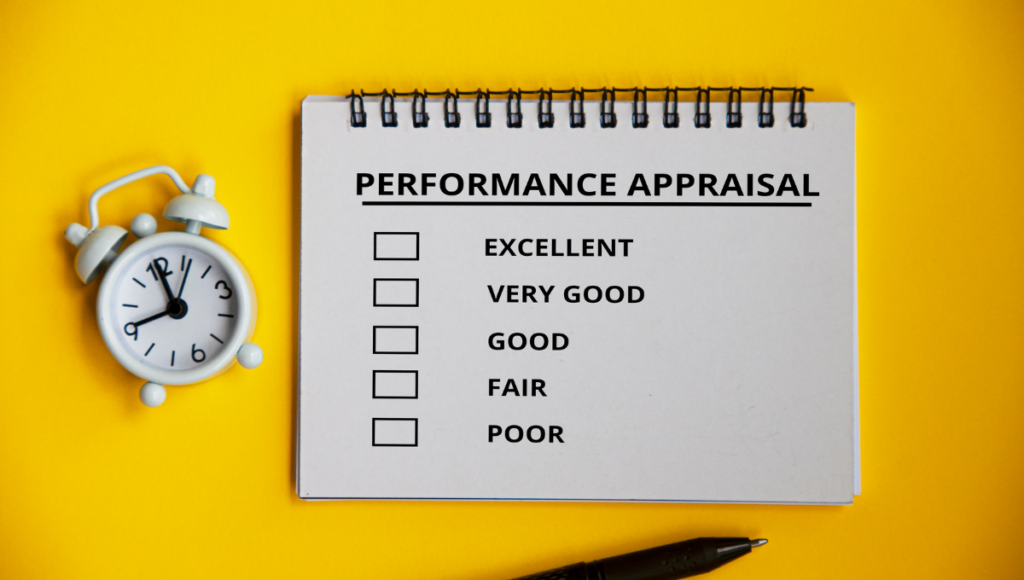How to Ace Your Performance Review as an Employee?

- How Can I Effectively Communicate My Achievements During a Performance Review?
- What are Some Strategies for Articulating My Goals in a Performance Review?
- How Should I Approach Difficult Conversations During a Performance Review?
- What is the Importance of Constructive Criticism in a Performance Review?
- How Can I Use My Performance Review as an Opportunity for Professional Development?
It is no secret that it is extremely challenging to build a career in a competitive business landscape. The challenge is especially acute in India, given the size of its population. A slew of job losses and disruptions has resulted in a high rate of youth unemployment. As a result, everyone is keen to hold on to a job amidst an uncertain climate. A performance review during appraisal season is quite useful in these situations. The question on most minds would be, what should you say in a performance review? It is certainly important to know, given that the performance review system is a “critical aspect of the corporate landscape” in India. This guide, therefore, will help you chart out confident responses. Dive in and discover what to say in a performance review as an employee comes the next appraisal season.
How Can I Effectively Communicate My Achievements During a Performance Review?
Many often wonder what to say in a performance review as an employee. There are a lot of things one can say, but communication is key to conveying them properly. Here’s what you should remember:

1. Prepare Extensively
An organization is likely to be swayed by your assessment if it is backed by evidence. It is, therefore, prudent to collect documents, emails, or project reports that quantify your achievements. It is also advisable to compare previous goals and assess whether you were successful in attaining them.
2. Speak Confidently
A reliable way to underscore your significance is to highlight the obstacles you faced and how you overcame them. It is critical to exhibit your impact with pride and clarity. Most organizations like employees who take ownership of their achievements. It is typically preferable to refrain from rambling while detailing your work.
3. Leverage the STAR Method
Many people use the STAR (Situation, Task, Action, and Result) method to elaborate on their achievements. It involves describing the context of the problem, outlining specific responsibilities in the situation, explaining the specific steps taken, and quantifying the impact of your actions.
4. Rely on Feedback
There is a genuine case to be made for feedback when thinking of what to say in a performance review. Employees should not hesitate to ask for feedback from their manager to gain additional insights. Furthermore, most companies have a structure in place for employee feedback.
ALSO READ: Decoding Success: Top 25 Corporate Jargon Every Professional Needs to Know
What are Some Strategies for Articulating My Goals in a Performance Review?
Every person should know how to articulate their goals to learn what to say in a performance review as an employee convincingly. Here’s what you can do:
1. Define Goals
The first step toward articulation starts with coming up with SMART (Specific, Measurable, Achievable, Relevant, and Time-Bound) goals. Not only should you avoid vague or ambiguous statements, but also identify the most important goals and prioritize them. Lastly, these goals must align with the firm’s objectives.
2. Initiate a Discussion
The next step is to relay these goals to your manager and inform them that the goals will enhance performance. It is advisable to include goals related to your professional development and growth as it is easier to secure approval. Hence, it is better to set goals that are realistic and attainable within the given timeframe.
3. Evaluate Goals
It is difficult to set goals in a silo, so seek suggestions from your manager or colleagues. For instance, many companies have dedicated channels to facilitate employee feedback, which can help gather insights.
4. Show Initiative
Companies admire employees who are proactive when it comes to achieving their goals. So it is good to monitor progress and to make necessary adjustments. Use the performance review as an opportunity to demonstrate a commitment to improvement by taking on new challenges and adapting to the company’s needs.
ALSO READ: Top 20 Skills for 2024 and How They Can Boost Professional Growth
How Should I Approach Difficult Conversations During a Performance Review?
Many appraisal questions and answers can trigger some thorny or uncomfortable conversations. It is, therefore, imperative to know what to say in a performance review as an employee. Let’s see how to manage them:
1. Maintain Composure
A difficult conversation should be handled with a calm demeanor coupled with thorough professionalism. An emotional conversation is undoubtedly tricky, But focus on objective facts and solutions instead of pointing fingers.
2. Listen Patiently
Restrain your impulse to respond and listen to your manager’s concerns attentively. Moreover, ask follow-up questions to understand their perspective on the issue before explaining your point of view.
3. Speak Softly
Use “I” statements, such as “I feel…”, “I believe…”, etc to express your perspective without assigning blame. It is easy to be aggressive when there is a difference of opinion, but remember to shift focus to solutions.
4. Find Common Ground
There is a risk of a fallout when there are differences. Therefore, find ways to walk on the same road to ensure resolution and build upon similar expectations. For example, stress points of agreement to move toward solutions.
5. Take a Break
A break should be taken if the appraisal questions and answers seem to be heading toward acrimony. It is better to resume the conversation later when everyone is calmed down to acknowledge irreconcilable differences.
ALSO WATCH: Thinking About Career Transition? Let’s Talk! by Ruchika Rocque, HR, Microsoft
What is the Importance of Constructive Criticism in a Performance Review?
Constructive criticism is one of the most important chapters when learning what to say in a performance review as an employee. Here’s why:
1. Boosts Growth
The feedback received through constructive criticism helps employees identify areas where they can develop their skills. As a result, employees enhance their performance by recognizing their strengths and weaknesses, which, in turn, helps the company.
2. Improves Accountability
Constructive criticism allows employees to be self-aware and reflect on their actions, which subsequently enables personal and professional growth. Furthermore, employees take accountability by addressing areas of concern.
3. Builds Trust
Employees know that managers care about their employees’ success and are invested in helping them prosper. Consequently, it fosters respect within the team and creates a positive work environment.
4. Encourages Learning
Every employee is eager to work on their feedback when it is given constructively, which promotes a culture of continuous learning within the organization. It spurs employees to learn new skills and evolve to meet the changing needs of the business.
5. Advances Careers
The act of honing skills and improving performance opens the doors to many opportunities. It helps employees blossom in their careers as they are in a position to challenge for senior roles.
ALSO READ: Top 5 Ways to Leverage Your Existing Skills for a Smooth Career Change
How Can I Use My Performance Review as an Opportunity for Professional Development?
A person can unlock tremendous benefits if they know what to say in a performance review as an employee. Let’s find out how:
1. Enhances Skills
A thorough self-assessment reveals areas for improvement and past goals. This allows for a detailed look at industry trends, new skills in demand, or potential areas of specialization within your field to fill any knowledge gaps.
2. Learn About New Opportunities
It helps to pay attention to your manager’s feedback as it can shed light on potential development opportunities. Managers appreciate the desire to grow and help employees create a specific action plan to meet development.
3. Evaluate Progress
There is a space for employees to seek out resources and learning opportunities in a performance review. The efforts to monitor your progress show maturity as you demonstrate your capability to address shortcomings.
4. Expand Professional Networks
A performance review compels employees to reach out to colleagues or mentors to seek guidance in the development journey. Their advice, feedback, and insights help to make informed decisions about your career.
In conclusion, performance review is indispensable, so you need to take it seriously. There is a lot of traction for adopting performance reviews across industries. A professional aiming to stay ahead in today’s competitive landscape has to know how to navigate the waters of performance review. Emeritus offers an array of online courses for newcomers or veterans aiming to upskill, reskill, or augment their careers. Every course is designed by industry-specific experts who bring years of practical experience to the virtual classroom. Sign up today and learn what to say in a performance review as an employee today!
Write to us at content@emeritus.org


